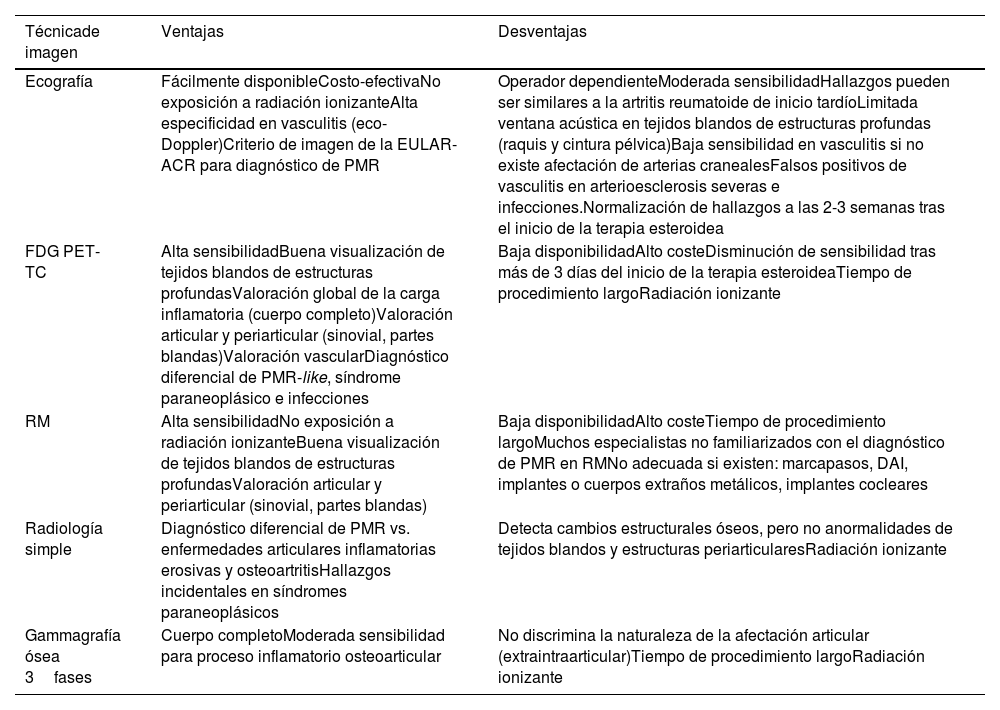La polimialgia reumática (PMR) es una enfermedad inflamatoria de las articulaciones que se presenta en pacientes mayores de 50 años con dolor y rigidez matutina prolongada en las cinturas del hombro y la cadera y en el cuello. La falta de hallazgos clínicos específicos, signos de laboratorio, biomarcadores y métodos de imagen establecidos dificulta el diagnóstico de los pacientes con esta enfermedad. La 18F-FDG PET/TC es una técnica de imagen funcional que constituye una herramienta consolidada en Oncología y que también ha demostrado su utilidad en el campo de las enfermedades inflamatorias. El objetivo de este trabajo es presentar evidencia bibliográfica sobre el uso de métodos de imagen molecular como la PET/TC para el diagnóstico precoz, la evaluación de la actividad de la enfermedad y la respuesta terapéutica en la PMR. Al mismo tiempo, se consideran las ventajas, las desventajas y las contraindicaciones de otros métodos.
Polymyalgia rheumatica (PMR) is an inflammatory joint disease that presents in patients older than 50 years with prolonged morning pain and stiffness in the shoulder and hip joints and neck. The lack of specific clinical findings, laboratory signs, biomarkers and established imaging methods makes it difficult to diagnose patients with this disease. 18F-FDG PET/CT is a functional imaging technique that is an established tool in oncology and has also proven useful in the field of inflammatory diseases. The aim of this paper is to present literature evidence on the use of molecular imaging methods such as PET/CT for early diagnosis, assessment of disease activity and therapeutic response in PMR. At the same time, the advantages, disadvantages and contraindications of other methods are considered.













